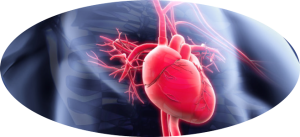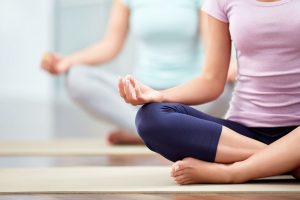- WE MOVED !!!
-
 Professional Acupuncture & Physical Therapy1118 East Superior Street
Professional Acupuncture & Physical Therapy1118 East Superior Street
Duluth, MN 55802(218) 724-3400 Clinic Hours
Mon8:00 am - 4:30 pmTue1:45 pm - 4:30 pmWed8:00 am - 4:30 pmThu8:00 am - 4:30 pmFriCLOSED

- Long Covid Booklet
Blog
Five Reasons Acupuncture Helps Digestive Function

Digestion is a complex task performed by the body. It begins in the mouth and finishes when the ingested food leaves the body through the rectum. For all we have learned over the years regarding digestion, there is still so much more we don’t know or are still learning. For example, it wasn’t until recently, the last 10 years or so, that modern medicine confirmed our gastrointestinal tract is our second brain. This discovery is drastically changing the way the body and its many functions are viewed, because everything we put in our mouths can potentially have life-altering effects on the mind, as well as the body.
Digestive disorders are rampant in the United States. Surveys estimate nearly 70 million people in the United States are affected by some sort of digestive disorder. This could be anything from gallstones to acid reflux to pancreatitis. For many, these disorders are extremely debilitating. But for every person dealing with a debilitating digestive disorder, there are thousands more that just assume everything they are experiencing is “normal.”
Traditional Chinese Medicine (TCM) is just one of the many ways people can deal with their digestive disorders. TCM is a very old medical system that utilizes many different modalities to treat imbalances in the body. Acupuncture is just one of the modalities that can be used. More and more studies about the effectiveness of acupuncture are being performed every day, many of which hold great promise for those who suffer from digestive issues.
Acupuncture helps with digestion because it treats the person holistically, meaning all parts are considered when treatment is rendered. There is no compartmentalizing as in Western medicine. So, a person being treated by a licensed acupuncturist or TCM practitioner will not only notice changes in their digestive issues, but they may also notice changes in their psyche too. And since the mind and body are closely connected, this can be very beneficial for the patient.
Studies have shown acupuncture can stimulate peristalsis in the intestinal tract. This is very helpful for people who deal with chronic constipation. In as few as one to two treatments, a person suffering from chronic constipation may find relief.
Nausea and vomiting are another frequent problem associated with digestion. Acupuncture and even acupressure are wonderful tools for calming the upset stomach. One acupressure point on the underside of the forearm has been studied extensively just for this function. In most cases, the nausea and vomiting are greatly decreased or stopped altogether.
Bloating is another common problem associated with the digestive tract. This can be caused by eating too much food or improper digestion. Acupuncture treatments help the digestive process of breaking down foods without the excess gas that frequently causes bloating.
Diarrhea isn’t just a problem that occurs when somebody is suffering from the stomach flu. In fact, it is much more common than many people think. Acupuncture treatments can help resolve diarrhea by clearing either excess heat or excess dampness from the digestive tract, while also strengthening it.
If you are curious about how acupuncture and Traditional Chinese Medicine can help you with your digestive issues, ask us! We are happy to guide you along your healing journey.
6 Healthy Foods for the Heart
 Changing the way you eat is one of the best ways to improve heart health. By making an active choice to improve your lifestyle, you can see your heart health improve greatly as well. Below are superfoods to incorporate into your diet.
Changing the way you eat is one of the best ways to improve heart health. By making an active choice to improve your lifestyle, you can see your heart health improve greatly as well. Below are superfoods to incorporate into your diet.
Salmon
Salmon contains omega-3 fatty acids, which have been shown to help decrease the risk of an irregular heartbeat, lower plaque build-up in the arteries and decrease triglycerides, the main type of fat in our bodies. It is recommended by the American Heart Association to eat salmon or other fatty fish at least twice a week.
Potatoes
Believe it or not, potatoes can be very beneficial for heart health. Potatoes are packed with potassium and fiber, which can help lower blood pressure and risk for heart disease. As long as they are not fried, potatoes can be a great food option.
Nuts
You can’t go wrong with nuts. Almonds, walnuts, pistachios, peanuts and macadamia nuts are rich with fiber and vitamin E, which helps lower cholesterol. Don’t be skeptical by the high fat content of nuts, those who eat nuts regularly have been shown to be leaner than those who don’t. Walnuts among other nuts also contain high amount of omega-3 fatty acids.
Green Vegetables
There are many benefits to vegetables such as broccoli, spinach and kale. These vegetables can especially help your heart because of the high amounts of vitamins, minerals and carotenoids, which act as an antioxidant. Including green vegetables into your diet every day not only can improve overall health but give the heart a boost.
Avocado
Avocados are packed with monounsaturated fats that can help lower the risk of heart disease and help control cholesterol levels. This fruit is also rich in antioxidants and potassium, making it a superfood that can be easily incorporated into meals.
Oatmeal
Oatmeal is not only practical and affordable, but high in soluble fiber, which can help lower cholesterol. Choose oatmeal or plain oats with no added sugar. Make sure to be especially careful with instant oatmeal, which a lot of times contains added ingredients.
Sources:
http://bit.ly/1MQ6plW
The Heart According to TCM/ Acu & Stress
 In Traditional Chinese Medicine, the heart can be considered the most important organ in the body. All other organs connect to the heart and help the heart function as best it can. According to TCM, regulated blood circulation depends on the heart’s energy flow, or Qi. When the heart does not have enough Qi and is deficient in Yang, it can result in poor blood circulation, weak pulse, palpitations and chest pain.
In Traditional Chinese Medicine, the heart can be considered the most important organ in the body. All other organs connect to the heart and help the heart function as best it can. According to TCM, regulated blood circulation depends on the heart’s energy flow, or Qi. When the heart does not have enough Qi and is deficient in Yang, it can result in poor blood circulation, weak pulse, palpitations and chest pain.
A Heart Yang deficiency is associated with coldness. When Yang is not in balance, circulation slows resulting in extreme coldness and a pale face. A Yin deficiency happens when one is overworked and does not give the body and mind a chance to slow down. Fatigue and anxiety are symptoms of a Yin imbalance.
Imbalances in the heart can result in many other issues as well. When one is stressed, a domino effect happens in the body. The liver’s function decreases when the body is in high stress, therefore it cannot support the heart.
According to TCM, the heart is also the source of consciousness and thinking. When one’s blood circulation is in balance, their thought processes and mental activities function well. If the heart’s energy is deficient, one can experience anxiety, insomnia and restlessness.
TCM believes that acupuncture treatment can reduce stress and return the heart to health. When one is consistently stressed, there is an increased level in adrenaline and cortisol due to a raised blood pressure. When these stress hormones increase in the body, one is more susceptible to blood clots and a risk of heart attack.
Acupuncture works by lowering the body’s blood pressure and heart rate, which then can lower cortisol and adrenaline levels. Specific acupuncture points are used on the body to relax the mind and address problems like hypertension and symptoms of heart disease.
Acupuncture works by addressing the body as a whole. When there is an imbalance in the heart, acupuncture points work to return the body back to its normal energy flow, which improves the function of the organs.
Call us today at (218) 724-3400 to schedule an acupuncture appointment and take care of your heart!
Sources:
http://bit.ly/1RnEtMK
http://bit.ly/1n1eJdO
http://bit.ly/1mC5ssk
How Can Meditation Help Me?
Life is full of ups and downs. And everybody tends to get overwhelmed at times. But there are many ways of dealing with what happens. Some people go to the gym to workout. Others meet up with friends and enjoy a nice meal with lots of conversation. But sometimes it comes down to what we can do by ourselves, for ourselves. Many things are beyond our control. However, we can take responsibility for the state of our mind and meditation is a wonderful tool that helps us do that.
Meditation has been around for millennia. The earliest written records of meditation come from the Hindu traditions around 1500 BCE. Other forms of meditation developed in Taoist China and Buddhist India around the sixth and fifth centuries. The exact origins are subject to debate. But regardless of the origin, meditation practices have stood the test of time and are used all over the world.
Meditation is a way to transform the mind. Meditation practices can increase concentration, emotional positivity, clarity and a sense of calmness. Meditation can also give us the ability to see the true nature of things around us. There are many different forms of meditation, but they all have the same purpose, to calm the mind and help us find our center. When we engage in a particular form of meditation, we learn the habits and patterns of our minds and then we can actually change old habits.
 Scientific research tends to focus on two types of meditation, mindful meditation and focused-attention meditation. Through the use of MRIs, scientists have developed a more thorough understanding of what actually takes place in our brains when we meditate. The most dramatic effect is that our brains stop processing information like they normally would. The frontal lobe, which is responsible for reasoning, planning, emotions and self-consciousness, tends to stop functioning during meditation. The parietal lobe, which processes sensory information, slows down. The thalamus, which is the area that focuses our attention by interpreting sensory information, actually shows a slowing of incoming information. So all of these things combined, allows our brains to relax.
Scientific research tends to focus on two types of meditation, mindful meditation and focused-attention meditation. Through the use of MRIs, scientists have developed a more thorough understanding of what actually takes place in our brains when we meditate. The most dramatic effect is that our brains stop processing information like they normally would. The frontal lobe, which is responsible for reasoning, planning, emotions and self-consciousness, tends to stop functioning during meditation. The parietal lobe, which processes sensory information, slows down. The thalamus, which is the area that focuses our attention by interpreting sensory information, actually shows a slowing of incoming information. So all of these things combined, allows our brains to relax.
Meditation is a practice of focusing our attention and being aware of when it meanders and because of this, meditation can improve our focus when we are not meditating also. It’s a lasting effect that comes from regular meditation practices.
Another positive effect of meditation is that it allows us to have less anxiety and stress. The more we meditate, the looser the connections of certain neural pathways become. The area of the brain that triggers strong reactions becomes less “tight” and in contrast, the frontal lobe strengthens, allowing us to more easily look at things rationally. For example, sometimes when we experience pain, our minds go to the worst possible scenario and we become anxious. The more a person meditates, the more rational their thinking becomes and thus the feelings of anxiety decrease.
Probably the most studied benefit of meditation is compassion. People who practice meditation regularly have been shown to have more empathy. The part of the brain that processes emotional stimuli, the amygdala, normally slows down during meditation. But just like the aforementioned lasting effects of meditation, compassion and empathy are also affected long-term. Thus those who practice regular meditation tend to look at others differently and show them more understanding and compassion.
Memory is another area that is helped through the regular practice of meditation. Studies have shown that those who meditate are able to adjust the brain waves that screen our distractions and therefore increase their productivity. Part of this is because meditation actually increases the amount of grey matter in the brain. The greater the amount of grey matter, the more positive the emotions, the less age-related diseases affect us and the less our cognitive functioning decreases.
Over time, meditation can greatly improve the quality of life in numerous ways. Researching the different forms of meditation is the best way to get started. Try as many as possible and go with the one that resonates best with you. Your body will definitely thank you.
Five Reasons to Get Acupuncture for Migraines

Migraine headaches are a bit of mystery to the medical world. This ailment tends to be poorly understood and frequently undiagnosed and undertreated. According to the Migraine Research Foundation, this neurological disease affects nearly 39 million Americans. Migraines are characterized by severe, throbbing pain usually found on only one side of the head. Migraine headaches can also be accompanied by visual disturbances, dizziness, nausea, vomiting and extreme sensitivity to light and sound. These types of headaches can last from four hours to several days. Because modern medicine doesn’t completely understand this neurological phenomenon, the typical treatment is somewhat hit or miss.
There is an alternative though and this alternative is Traditional Chinese Medicine (TCM), which may include acupuncture, herbal formulas, tuina massage and cupping. Because TCM is customizable to the individual, it can do much more than just relieve pain. Here are five reasons why migraine sufferers should consider getting acupuncture:
- Acupuncture has been proven to relieve migraine pain. This is the number one reason TCM practitioners have people walk through their office doors. Pain, whether associated with migraines or not, is epidemic in the United States. Literally thousands of studies have shown acupuncture treatments can effectively relieve and reduce pain. This can be done both for acute and chronic pain. When acupuncture is coupled with tuina massage or cupping, the results can be even longer lasting.
- Acupuncture reduces inflammation. While migraines are not completely understood, it is agreed upon by most professionals any headache involves some sort of inflammatory response by the body. Acupuncture promotes the release of vascular and immune-mediating factors that actually decrease inflammation.
- Acupuncture can reduce serotonin levels. Serotonin is a hormone the body creates and many researchers, scientists and neurologists believe serotonin may be linked to the initiation of migraines. Since acupuncture can be used as preventive medicine, it can also help to balance serotonin levels on a long term basis, thus making migraines less likely to develop.
- Acupuncture can help with the symptoms of migraines. Acupuncture and herbal formulas can treat much more than just pain, including the symptoms of migraines. Studies have shown things like nausea, dizziness and vomiting can all be reduced through the use of regular treatments. Herbal formulas can be used in between acupuncture treatments to keep the symptoms under control.
- Acupuncture improves blood circulation. Many times, when a person experiences pain, it is because of a lack of proper blood flow and decreased oxygen. This is as true for migraines as any other type of pain. Acupuncture can improve blood circulation, which also increases the amount of oxygen that reaches the tissues. Cupping on the muscles surrounding the head, neck and shoulders is another modality that can assist with this as well.
